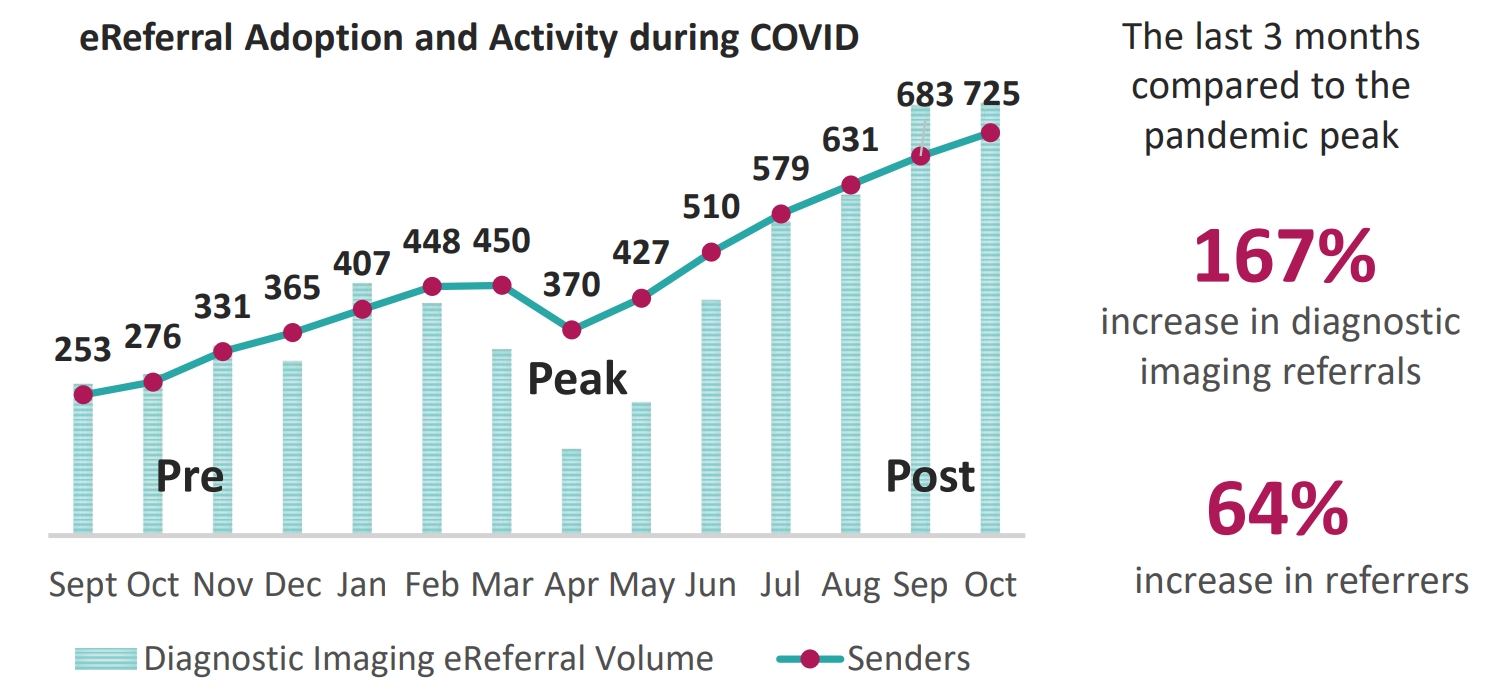eReferral Adoption Strategies throughout the COVID-19 Pandemic
Change Management Strategies during the Pandemic:
- Remote training, targeted live webinars and myth-busting engagement sessions
- Maintaining open lines of remote communication and regular check-ins
- Newsletters to keep users informed, highlighting tips and tricks
- Promoting and leveraging eReferral technology and enhancements
Key takeaways
Adapting change management tactics and clinical engagement strategies has resulted in increased adoption of electronic referral, supporting a quick rebound post first wave of the COVID-19 pandemic.

Having a one-on-one demo and sending links to instructions with attachments so that I can practice on my own; extending an ongoing offer to support as needed down the road, providing direct contact information, and welcoming callbacks numerous times if there were questions, was helpful!
Nurse Practitioner
Post-Training Survey OH-West
Interested in learning more?
Interested in partnering with us or learning more about
what we can offer you? Please reach out here.
Get the latest resources and insights
-

Patient experience with eReferral in Ontario Health Toronto Region
Patients who are emailed appointment information and reminders report an improved healthcare experience and prefer…
-

Ocean to OTN Integration
To further increase adoption and utilization of the Ontario Health (OH) eConsult Service, Ocean eReferral…
-

Reducing no show rates through the use of eReferral
Missed appointments (no-shows) are a significant issue in primary care settings,1,2 with many medical care…
-

Ocean to Excelicare RMS
The Ontario eServices Program has partnered with Axsys Technology Ltd to enable healthcare providers to…